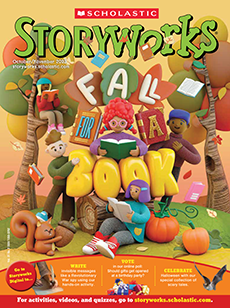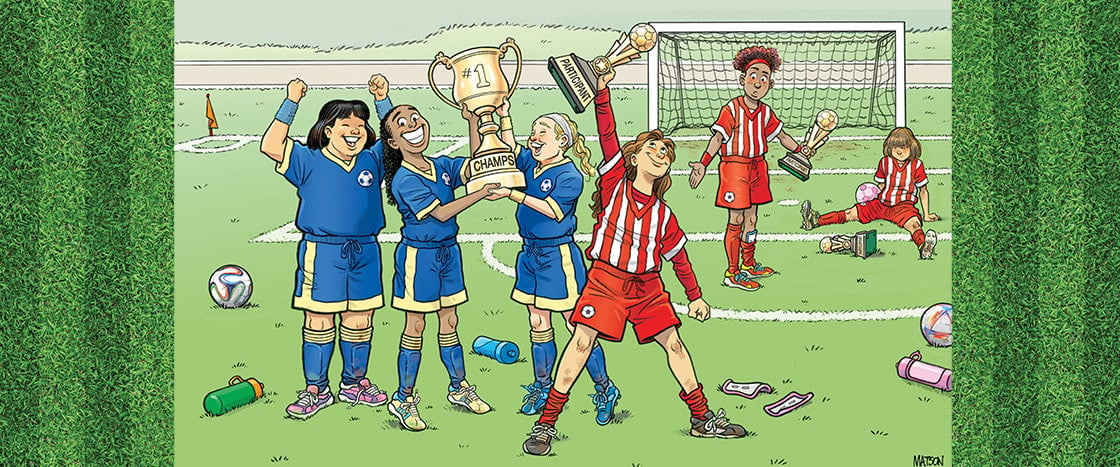Art By RJ Matson
The big day is finally here. After months perfecting passes and shots, you and your team have made it to the final game of the soccer tournament. You’re ready to win . . . but so is the other team.
Until the last minute, the score is tied. Everyone in the crowd is on the edge of their seats. Then, suddenly, someone scores!
The game is over. The other team has won—and earns a shiny gold trophy.
But then the coaches start giving out something else to you and the other players: participation awards for taking part in the tournament. Everyone reacts differently. Some glow with pride. Others look disappointed.
And you? You don’t know how to feel . . .
The big day is finally here. You and your team have spent months practicing passes and shots. And now, you’ve made it to the final game of the soccer tournament. You’re ready to win. But so is the other team.
The score is tied until the last minute. The crowd is on the edge of their seats. They want to know what will happen. Suddenly, someone scores!
The game is over. The other team has won. And they get a shiny gold trophy. But then the coaches start giving out something else to you and the other players: participation awards for taking part in the tournament. Everyone reacts differently. Some look proud. Others look disappointed.
And you? You don’t know how to feel . . .

